Why you’ll love this family favorite recipe!

I still remember my first bite of Korean Japchae at Oseyo, a local restaurant down the street. I was a little nervous about the heat from the gochujang and secret sauce coating the glass noodles, but much to my surprise—I was immediately obsessed!
Since this spot is more of a special occasion splurge, I set out to master this savory-sweet glass noodle stir-fry at home.
It took a few tries to get the timing on the crisp-tender veggies, the perfect cut of juicy beef, and that signature umami-packed sauce just right.
But after some serious testing (and taste-testing!) for the Weeknight Winners cookbook, Justin and I landed on a version that we think is even better than the restaurant’s!
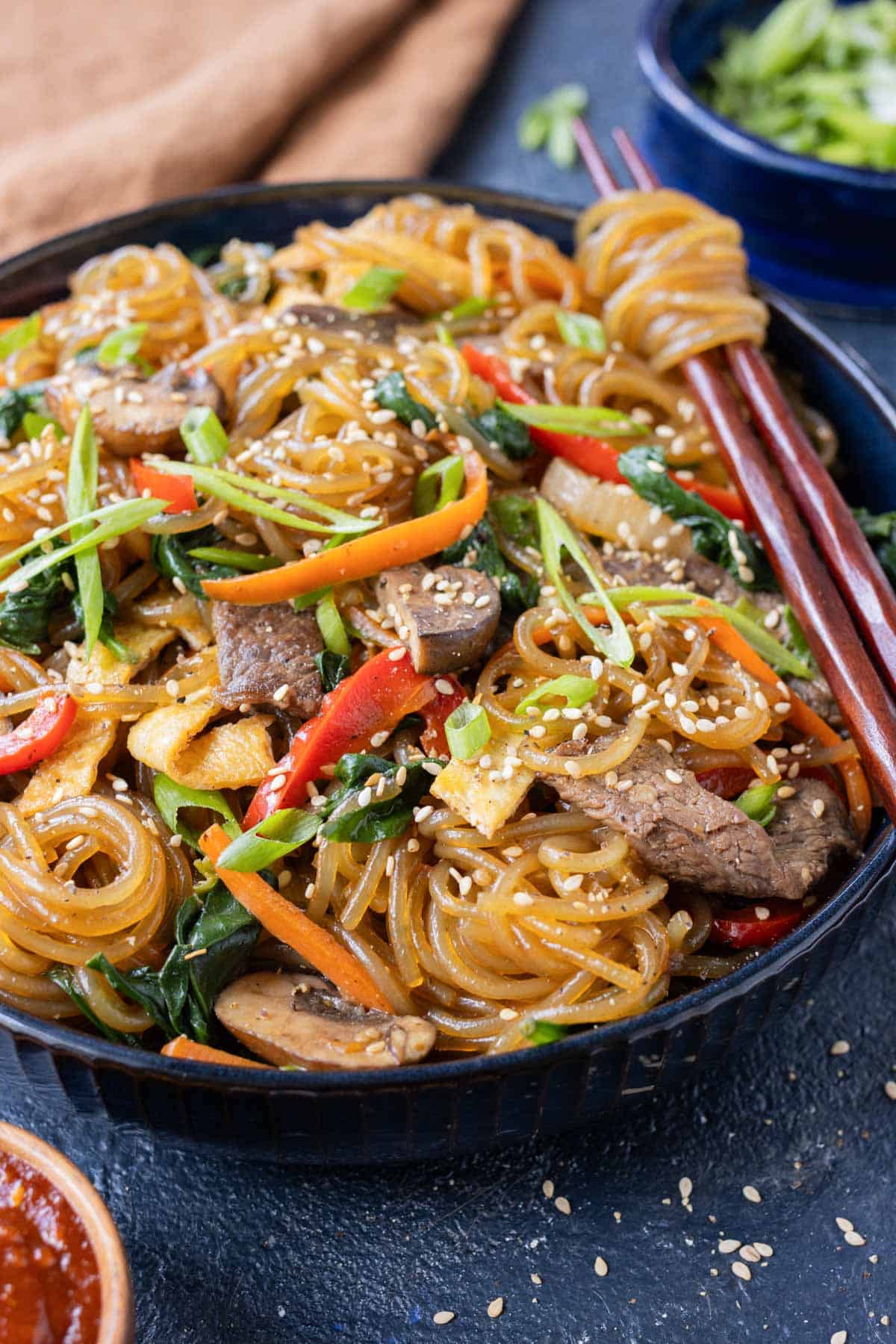
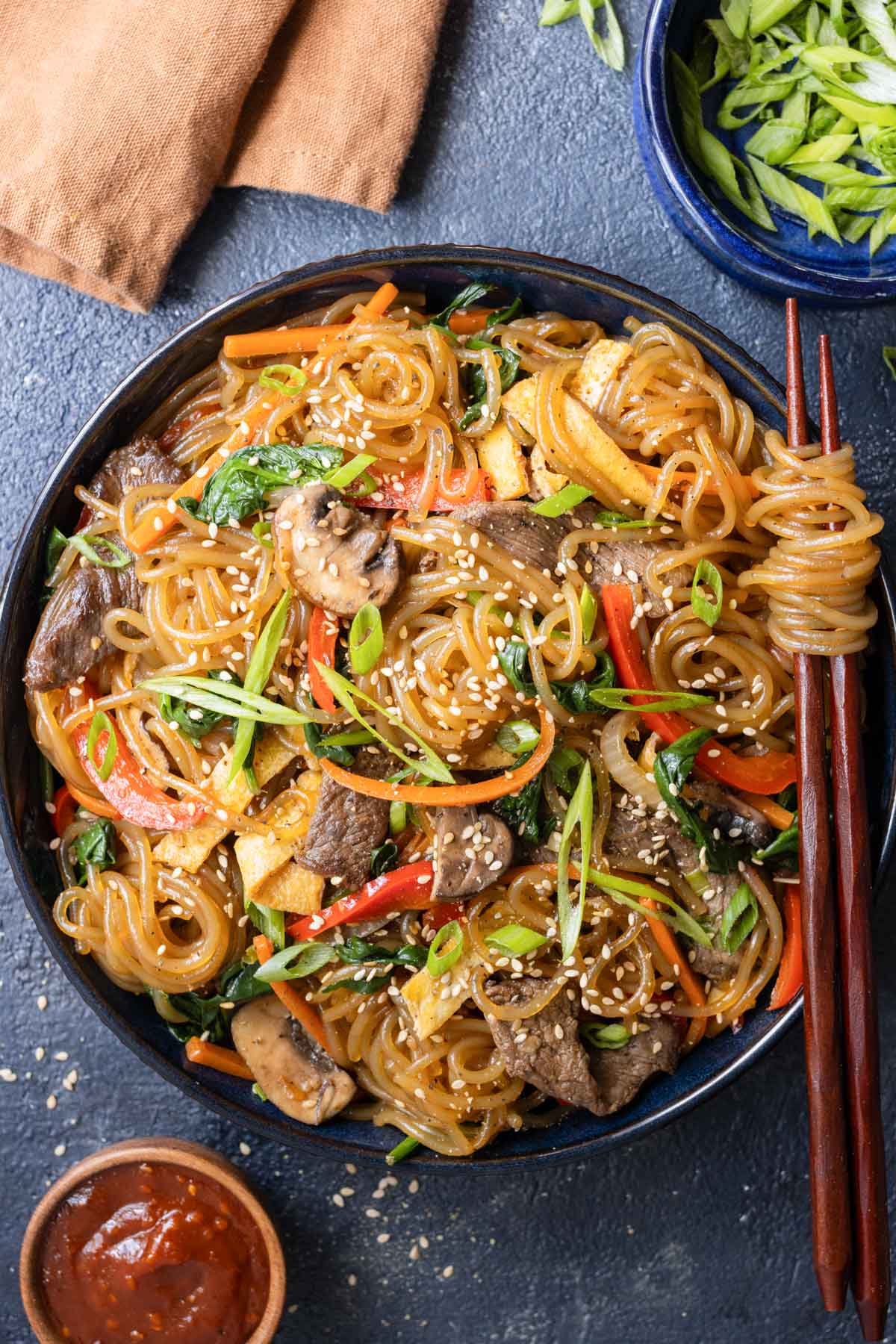
Ingredients and Substitutions
For the exact measurements and detailed instructions, please see the recipe card below.
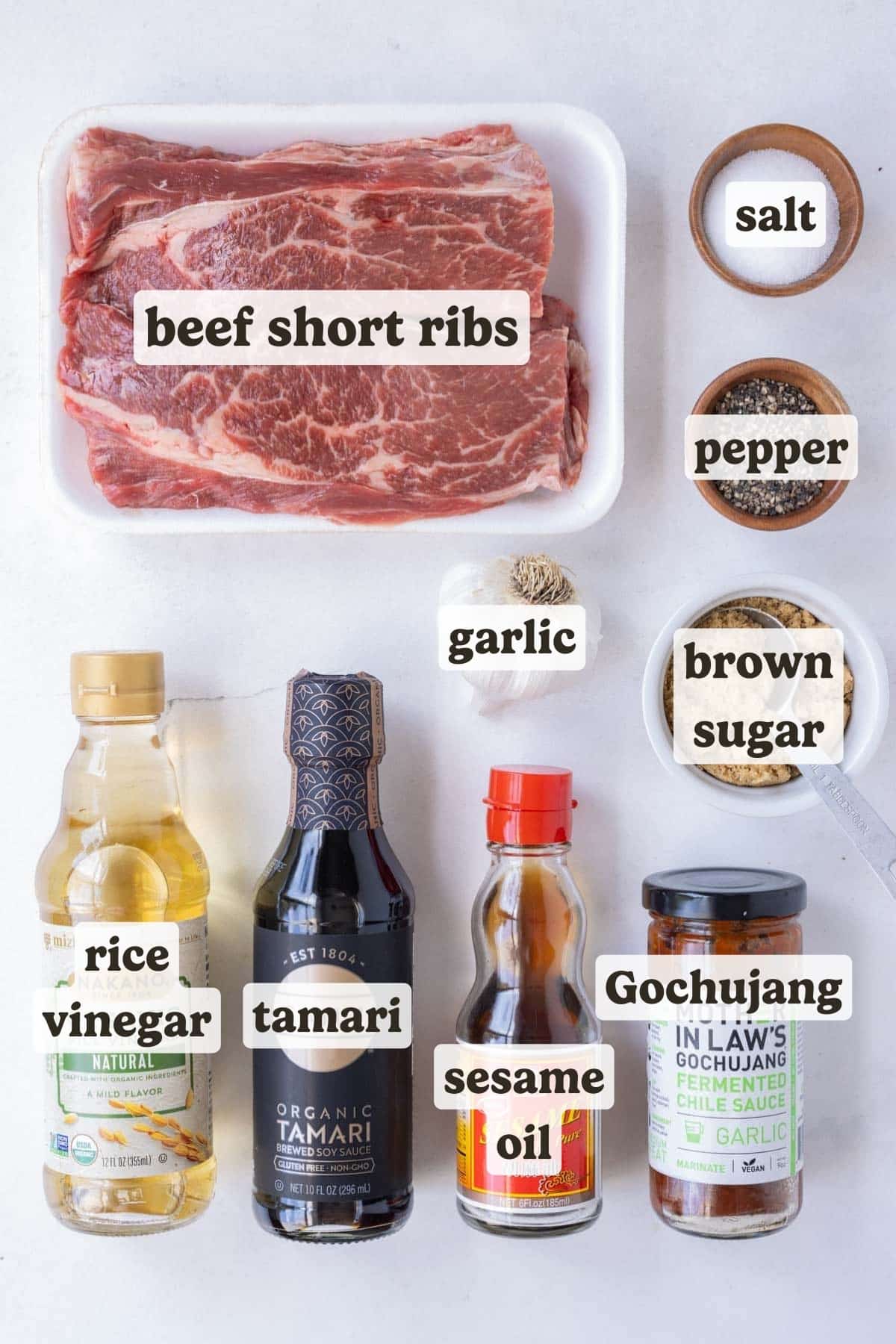
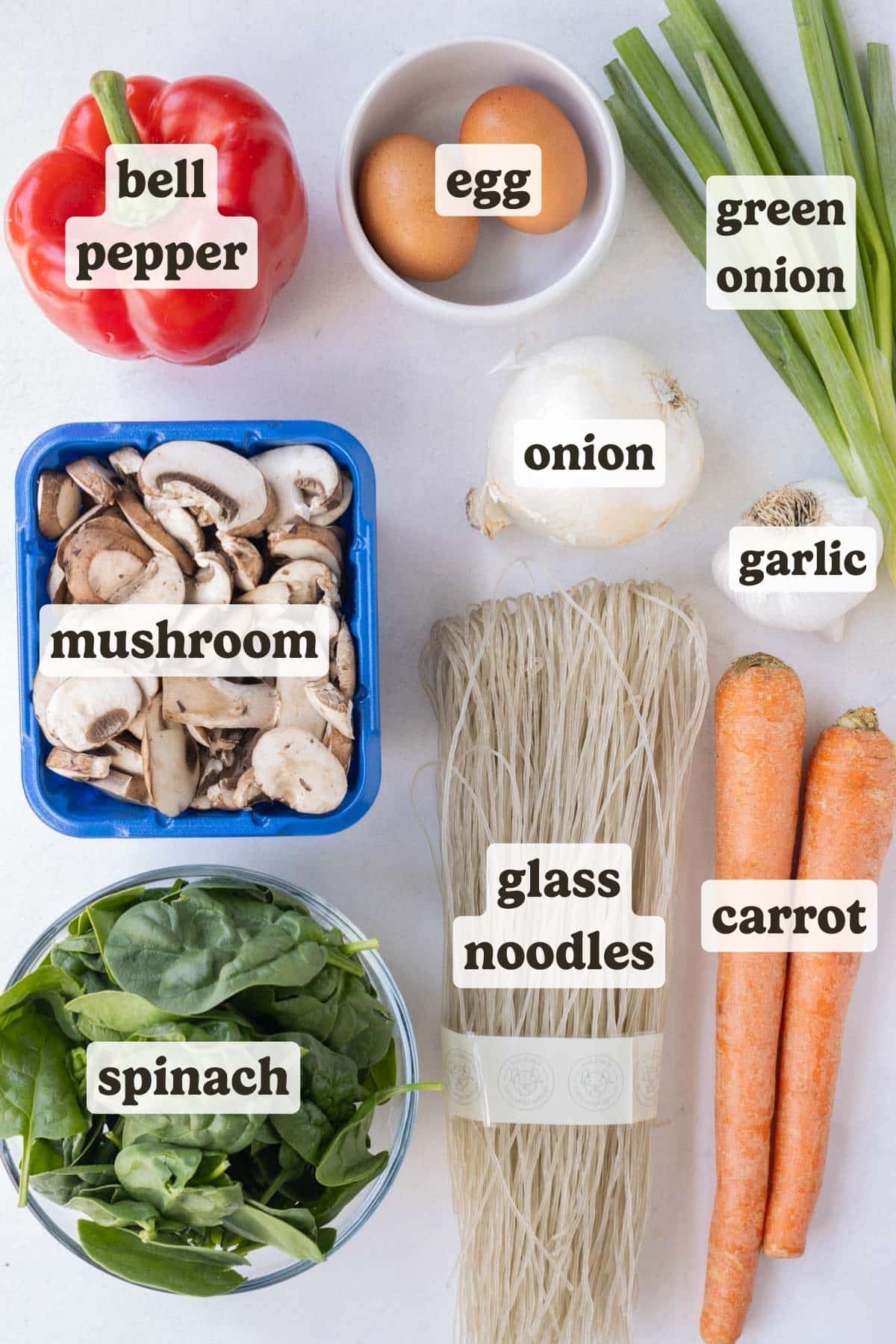
- Glass noodles. If there’s one thing you can’t compromise on when making this dish, it’s these noodles. They’re very unique in that they are made out of sweet potato starch which gives them a glassy texture and a slightly chewy bite. Swap them out, and it just won’t be the same. (I like to buy this big box so I always have them on hand!)
- Boneless beef short ribs. After testing multiple cuts, short ribs were the clear winner for the most flavorful, tender bite. You can use bone-in, but you’ll need 2-3x the weight to make up for the bones.
- Soy sauce or tamari. Tamari is my go-to since it’s less salty but still packs that savory punch, but regular soy sauce works just fine.
- Veggies. I love using a mix of bell peppers, carrots, onions, mushrooms, and spinach for the medley of colors. Feel free to switch it up, but you will need to adjust the cook times as needed!
- Gochujang. If you can get your hands on this specialty Korean chili paste, do it!! It has a drastically different flavor profile than traditional hot sauces (even sriracha!) and is what gives this dish a more authentic Korean flavor.
- Eggs. Of anything in this dish that’s optional, I’d say it’s the eggs. Including these is part of a more traditional recipe, but you can definitely leave them out if needed.
Step-by-step Instructions
Please see the recipe card below for the full instructions, ingredient amounts, and a printable recipe.
Marinate the beef.
Whisk together soy sauce, brown sugar, vinegar, sesame oil, garlic, and pepper. Toss with thinly sliced short ribs and marinate for at least 30 minutes (up to 3 hours for max flavor).
Pro tip: More time = more flavor. Let it soak while you prep everything else!
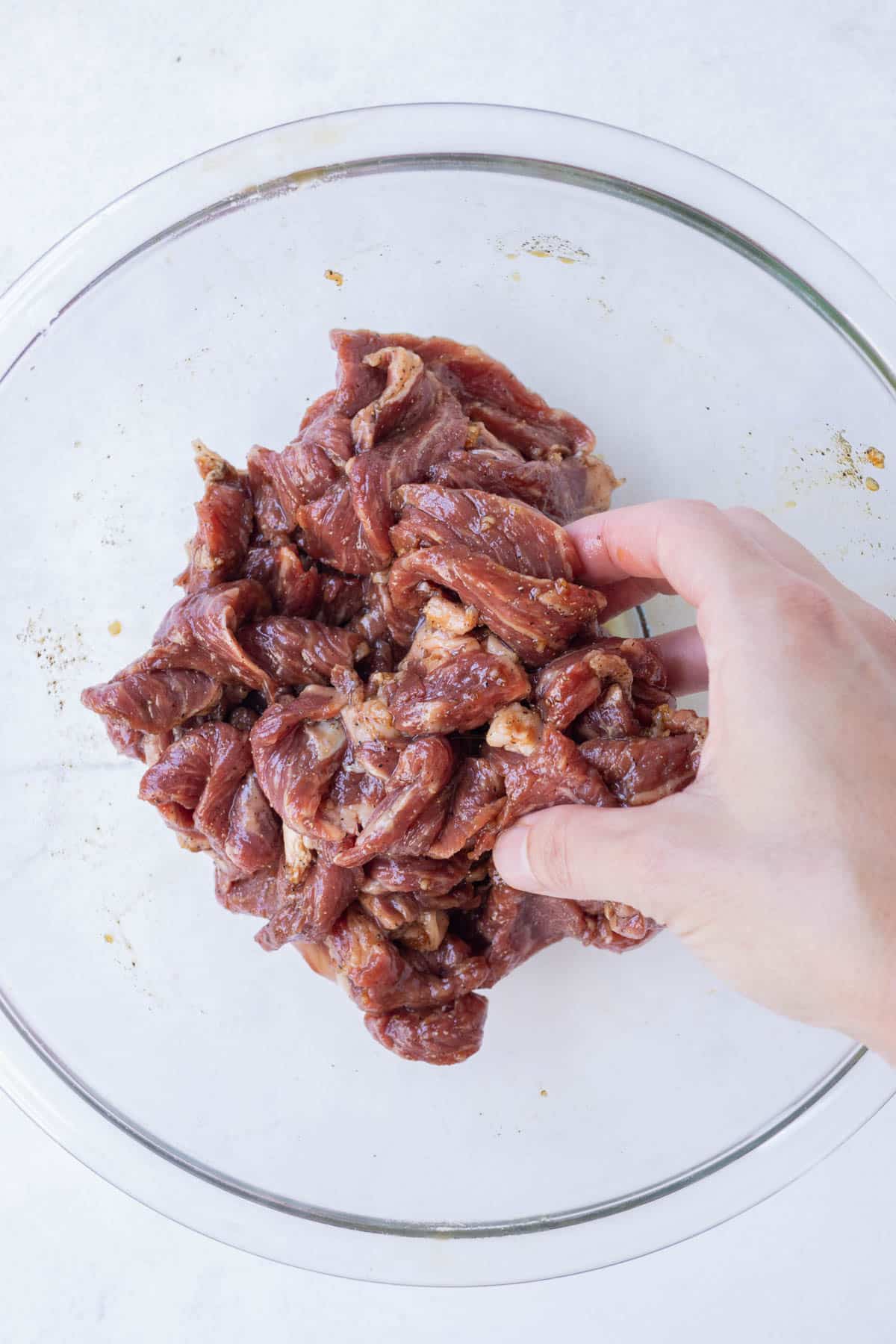
Cook the noodles.
Boil glass noodles according to package directions, then drain and toss in a big bowl with half the sauce while they’re still warm.
Pro tip: Warm noodles soak up flavor like a sponge, so don’t skip this!
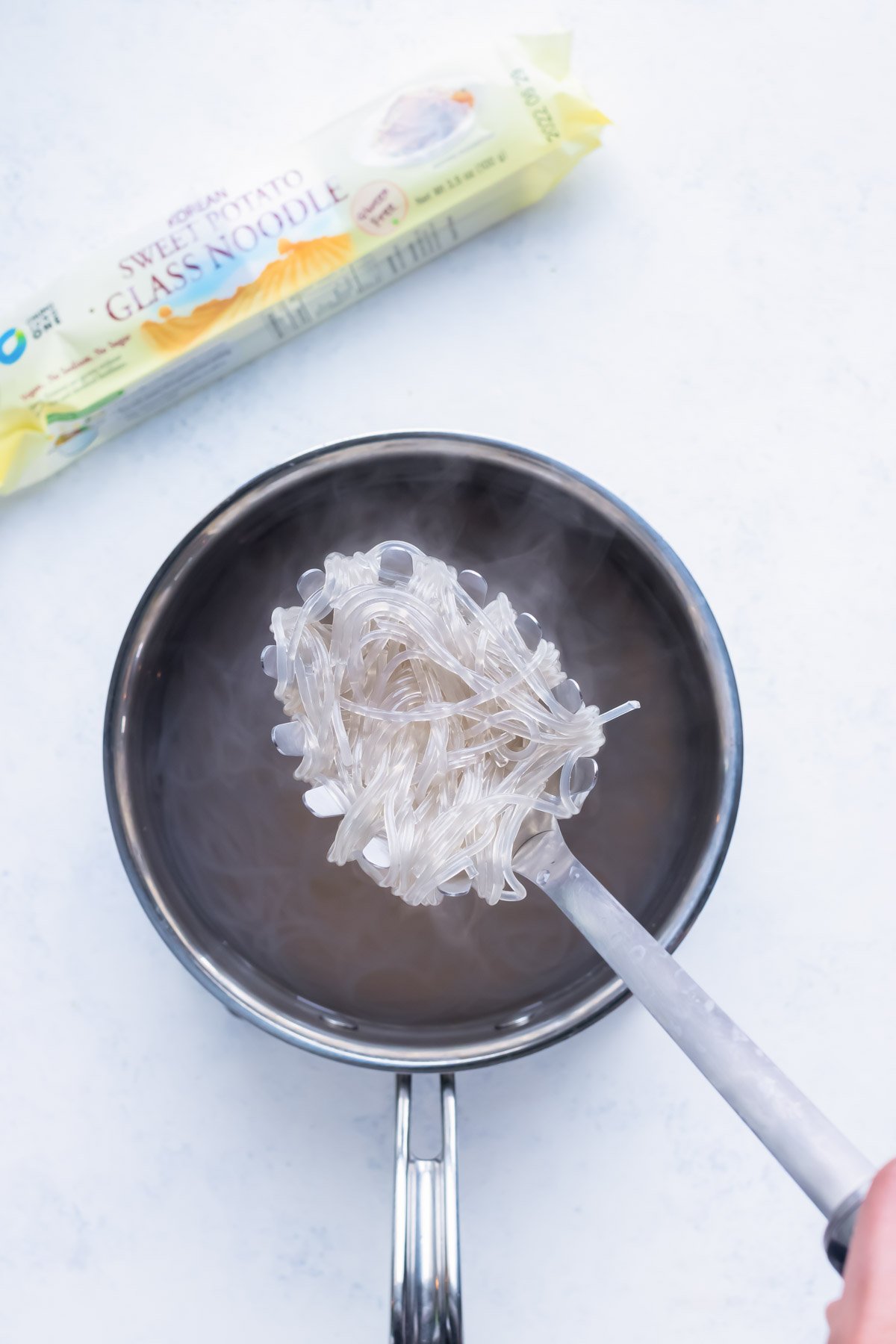
Make the egg ribbons.
Whisk eggs with a pinch of salt. Cook in an oiled skillet until just set, then slice into thin strips. Toss into the noodles.
Pro tip: Don’t stir the eggs. Let them set like a thin omelet so they’re easy to slice.
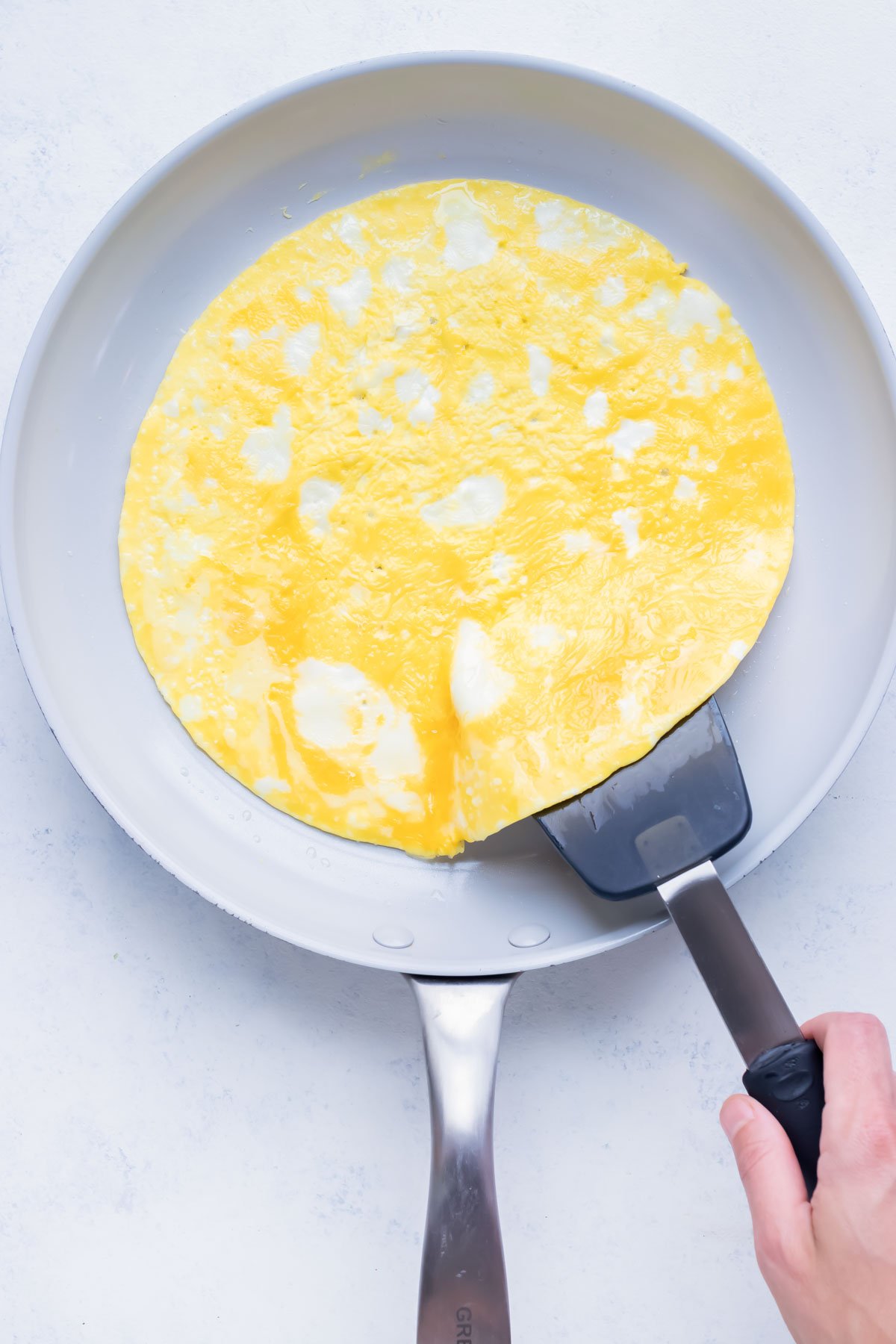
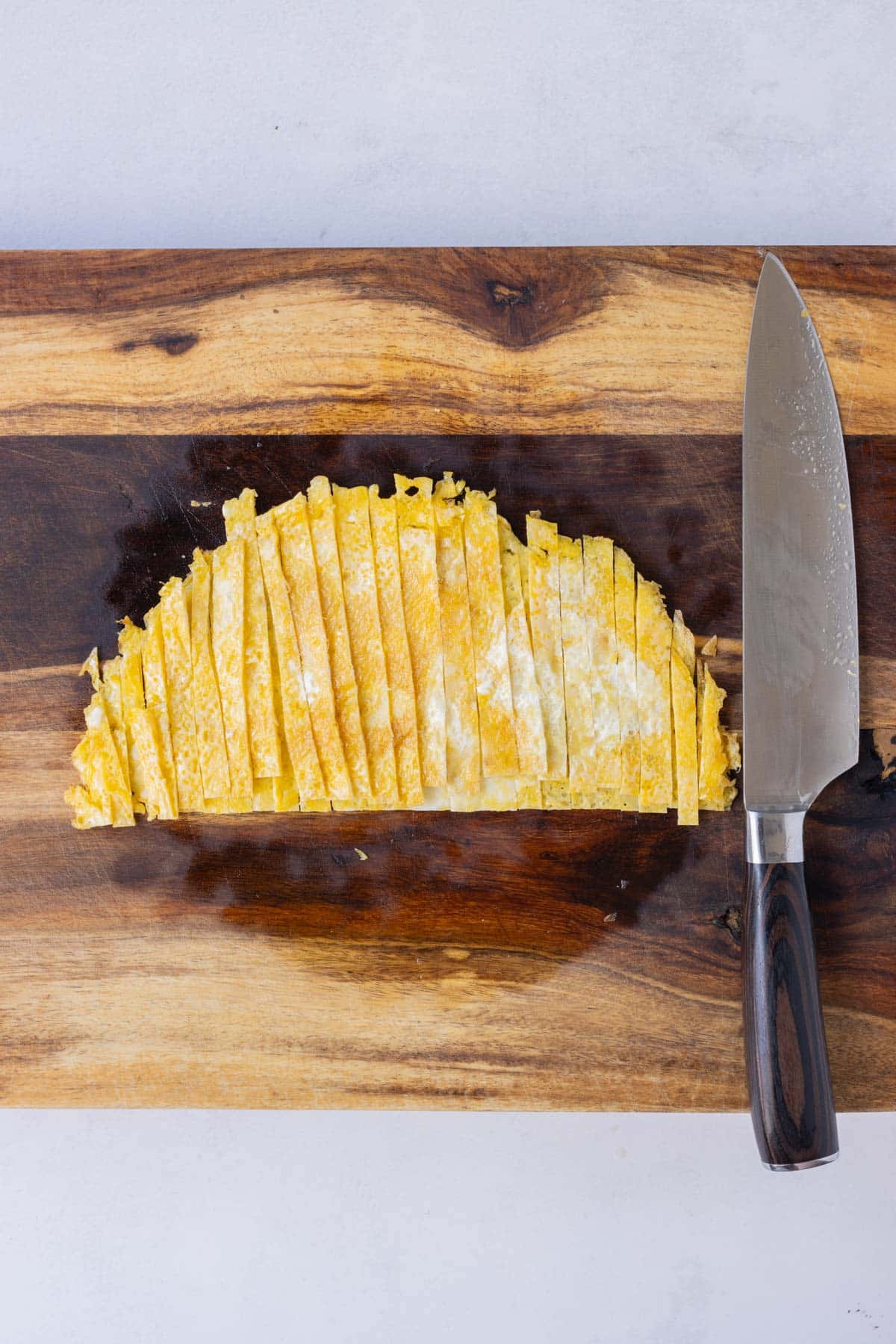
Stir-fry the veggies.
Start with carrots in a hot wok with avocado oil. After 3 minutes, add bell peppers and onions and cook until just tender. Set aside. Then stir-fry mushrooms, green onion whites, and spinach until wilted. Add everything to the noodle bowl.
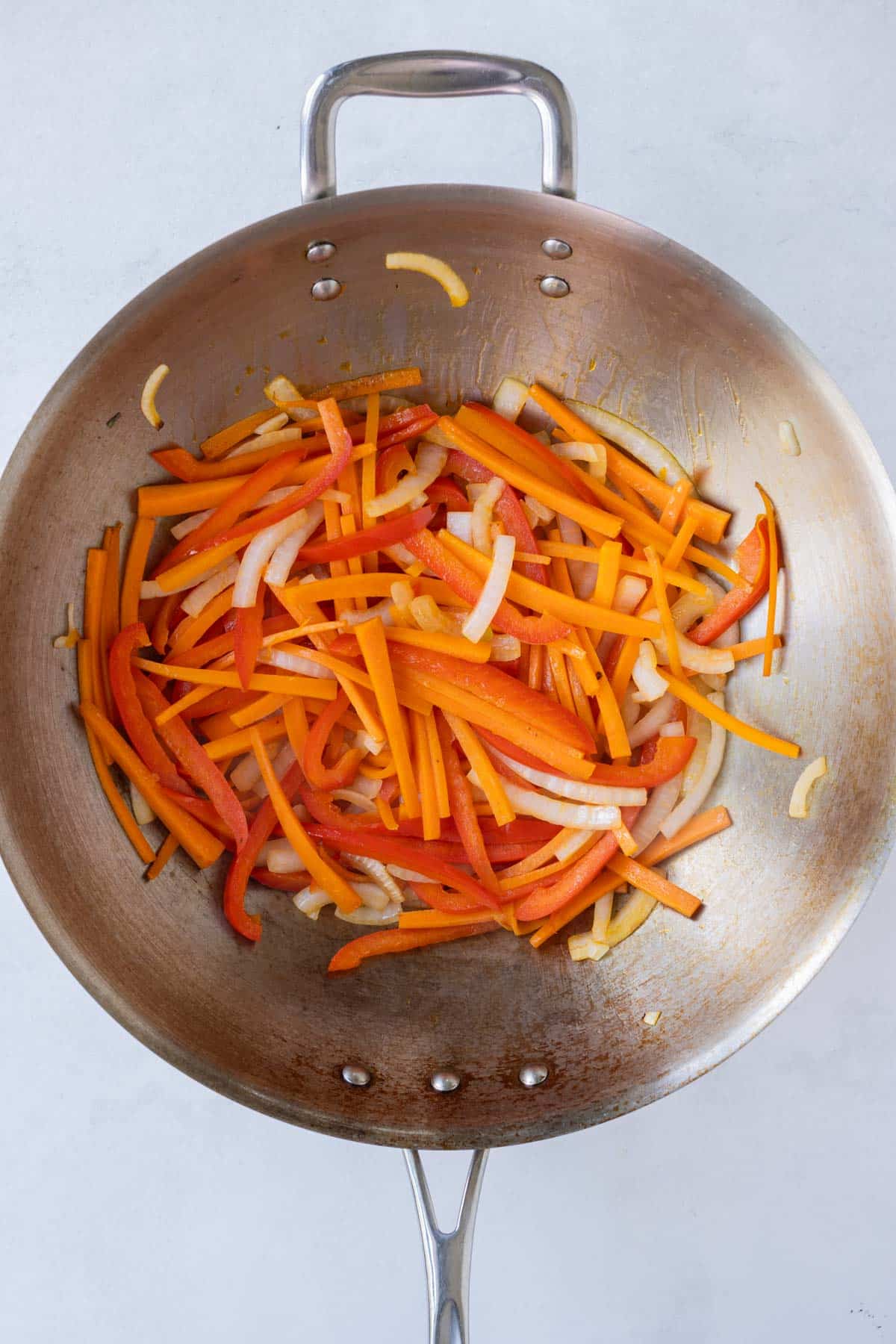
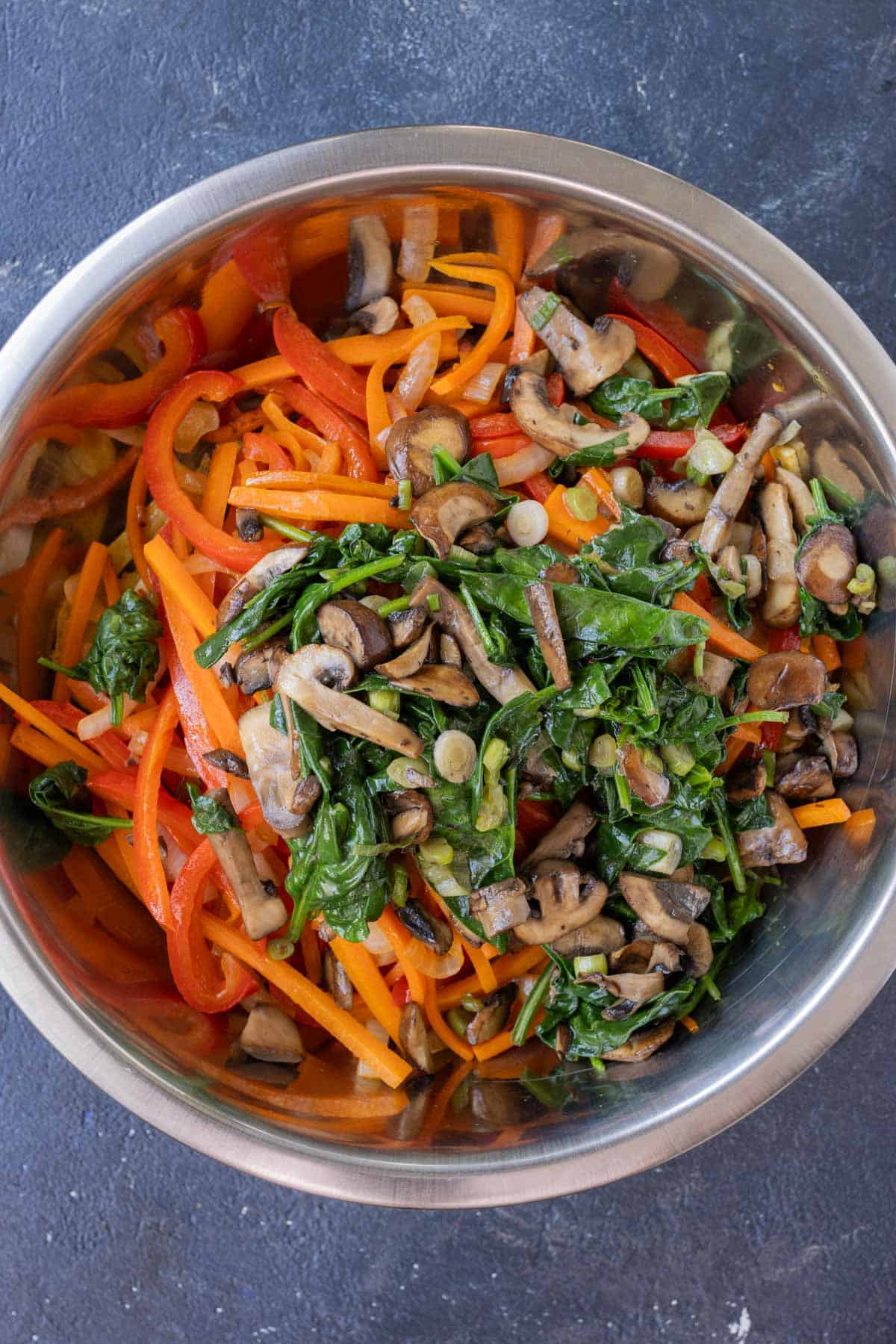
Cook the beef and mix it all together.
Stir-fry the marinated beef until browned and tender, about 5 to 7 minutes. Add to the bowl with the rest of the sauce. Toss it all together until well coated.
Top with green onions, sesame seeds, and gochujang if you want that extra kick!

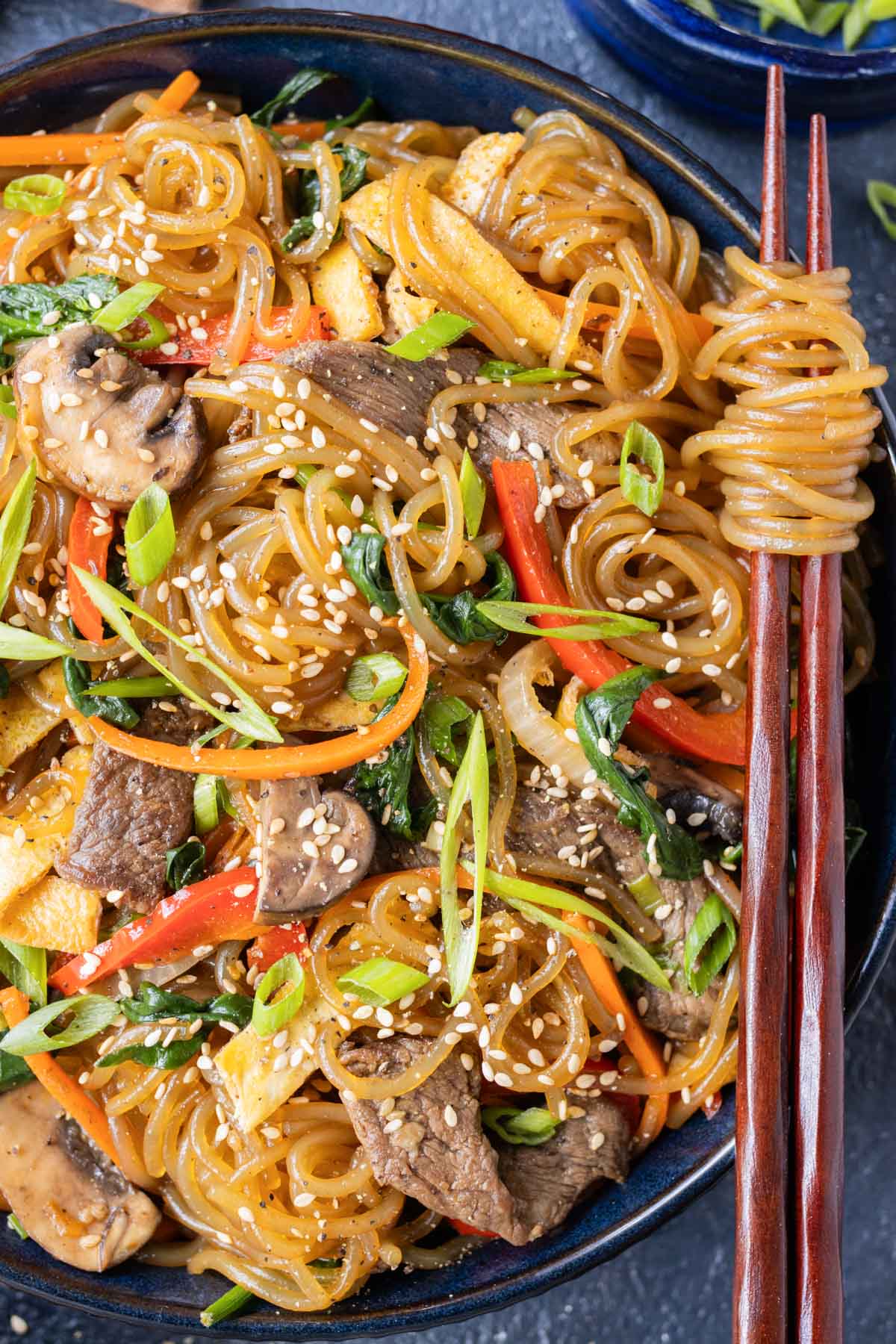
FAQs
The name literally translates to “mixed vegetable,” which makes sense as it’s a stir-fry dish loaded with a ton of veggies! Japchae’s flavor is savory but with a hint of sweet, and it can be enjoyed either hot or cold.
The transparent noodles in this Japchae recipe are called glass noodles, also known as cellophane noodles or sweet potato starch noodles.
These particular noodles are the Korean variety dangmyeon. They’re made from sweet potato starch and water, and are a little thicker than the Chinese varieties you may have had before.
It’s not recommended. These sweet potato starch noodles have a glossy texture and a distinctly chewy bite that makes this Korean dish what it is.
Nope, not at all! You won’t get that same crispy char on the veggies and beef, but you can still easily cook it all up.
Tap stars to rate!
Japchae (Korean Glass Noodles Recipe)
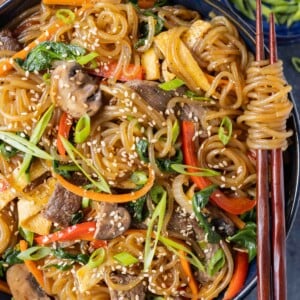
email this recipe!
Ingredients
- ⅓ cup + 1 tablespoon soy sauce or tamari divided
- 2 tablespoons packed brown sugar divided
- 2 teaspoons rice vinegar
- 4 teaspoons toasted sesame oil divided
- 1 ½ teaspoons minced garlic divided
- 1 teaspoon black pepper
- ¾ teaspoon salt divided
- 1 pound boneless beef short ribs thinly sliced
- ½ teaspoon gochujang or sriracha optional
- 8 ounces glass noodles
- 3 tablespoons avocado oil divided
- 2 large eggs
- 2 medium carrots peeled and thinly sliced
- 1 red bell pepper thinly sliced
- 1 small white onion thinly sliced
- 1 cup sliced button mushrooms
- 3 green onions, white and green parts thinly sliced, divided
- 2 cups baby spinach
- Toasted sesame seeds optional
Instructions
- Whisk together 1 tablespoon of the soy sauce, 1 tablespoon of the brown sugar, 2 teaspoons rice vinegar, 1 teaspoon of the sesame oil, ½ teaspoon of the garlic, and ½ teaspoon black pepper in a large bowl. Add beef and toss until well coated. Cover and refrigerate for 30 minutes or up to 3 hours.2 teaspoons rice vinegar, 1 pound boneless beef short ribs
- Whisk together the remaining 1⁄3 cup soy sauce, 1 tablespoon brown sugar, 3 teaspoons sesame oil, 1 teaspoon garlic, ½ teaspoon gochujang (if using), ½ teaspoon black pepper, and ½ teaspoon salt in a medium bowl.½ teaspoon gochujang or sriracha
- Cook glass noodles according to package directions. Drain in a colander and transfer to a clean, large bowl. Add half of the sauce and toss to coat.8 ounces glass noodles
- Whisk the eggs with ¼ teaspoon salt in a small bowl until combined. Heat 1 tablespoon of the avocado oil in a large nonstick skillet over medium heat. Add whisked eggs and swirl the skillet around until the eggs cover the entire bottom. Cook undisturbed for 2-3 minutes, or until the eggs are cooked through. You should have one giant circle of unseparated, cooked eggs.2 large eggs
- Use two spatulas to transfer the eggs to a cutting board, being careful to keep it in one piece. Cut the egg circle in half, rotate the pieces 90 degrees and then cut into ½-inch wide strips. Add to the large bowl with the glass noodles.
- Heat 1 tablespoon of avocado oil in a large wok or skillet over medium-high heat. Add carrots and cook for 3 minutes, stirring occasionally. Add bell peppers and onion and continue cooking for another 2-3 minutes, or until softened. Transfer vegetables to the bowl of glass noodles.2 medium carrots, 1 red bell pepper, 1 small white onion
- Add the remaining 1 tablespoon avocado oil to the wok. Once heated, add the mushrooms. Cook for 2 minutes, stirring occasionally. Add the white parts of the green onions and the spinach. Cook for 1 minute, or until the spinach begins to wilt. Transfer vegetables to the bowl of glass noodles. Add the remaining soy sauce mixture and toss until well combined.1 cup sliced button mushrooms, 2 cups baby spinach
- Return the wok to the heat. Once hot, add the marinated beef, taking care to shake off any excess marinade. Cook for 5-7 minutes, or until the fat has rendered off, and the beef is cooked through with a crusty sear. Transfer the beef to the bowl of glass noodles. Serve with the green parts of the green onions and toasted sesame seeds, if desired.Toasted sesame seeds
Tap stars to rate!
Video
Notes
- Marinade Timing: The longer you let the beef marinate, the more flavorful it will be! Aim for at least 30 minutes, but if you have time, letting it sit for up to 3 hours will deepen the taste.
- Beef: Boneless beef short ribs are the best choice for tender, juicy bites. Other cuts like flank steak or sirloin can work but may not be as tender.
- Glass Noodles: Look for sweet potato starch noodles (dangmyeon) for that signature chewy, slightly bouncy texture. Other noodles won’t give you the same results.
- Veggies: Stir-fry each vegetable in stages—harder veggies like carrots go in first, followed by softer ones like bell peppers, onions, and spinach. This keeps everything crisp-tender instead of mushy.
Nutrition
Nutrition information is automatically calculated, so should only be used as an approximation.
What to serve with Japchae?
Japchae is an incredibly flavor-packed and filling meal on its own, but if you want to round it out a little more, here are a few additional toppings and sides you can try:
- This Spicy Asian Cucumber Salad has just the right refreshing bite to balance out those rich flavors of the glass noodle dish.
- You’ll often find a big side of kimchi served with Japchae at most restaurants. You can either make your own homemade kimchi, or buy a jar of it at the store. (I love the Mama O’s and Tobagi brands!)
- Quick pickled radishes give a tangy kick to the rich dish. Or you can even load up with more Gochujang sauce (or even gochujang mayo!) to make it extra spicy!

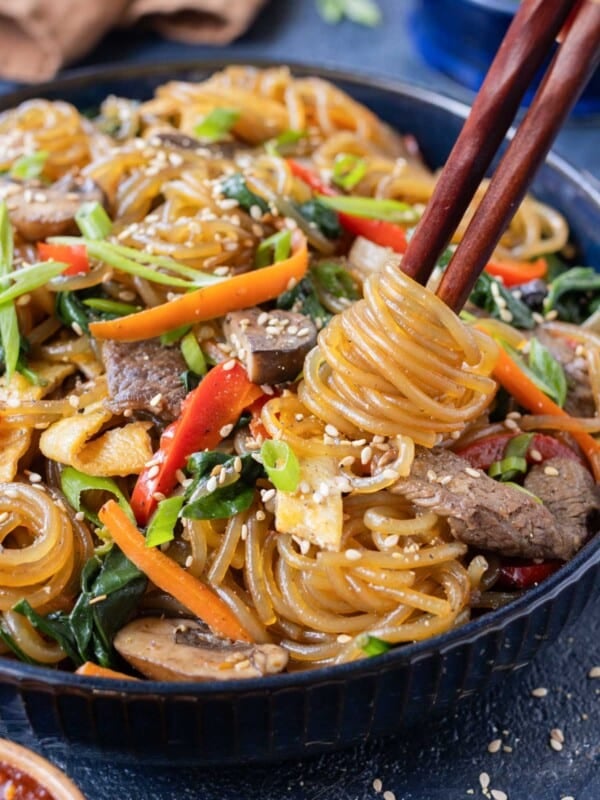
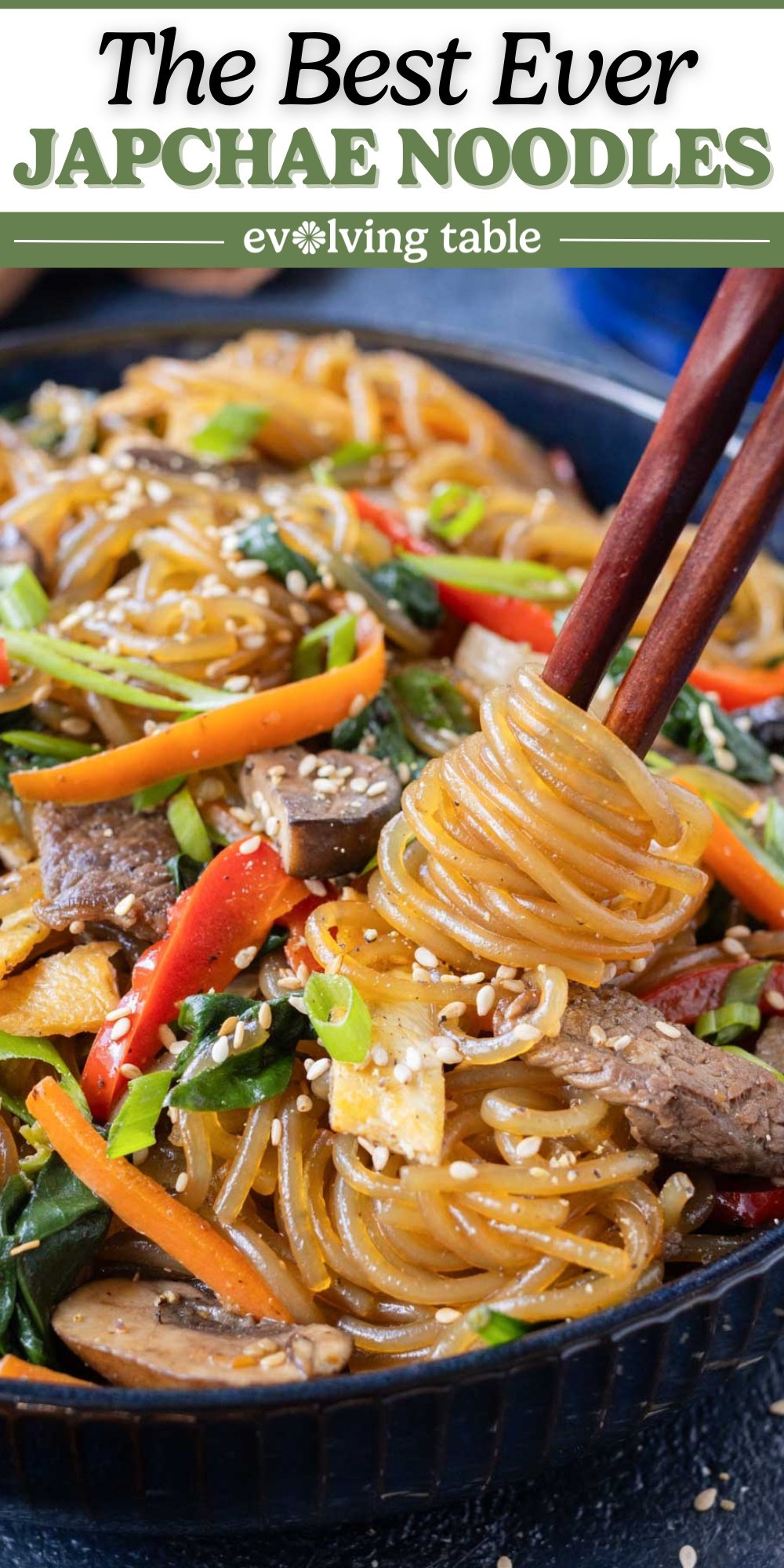
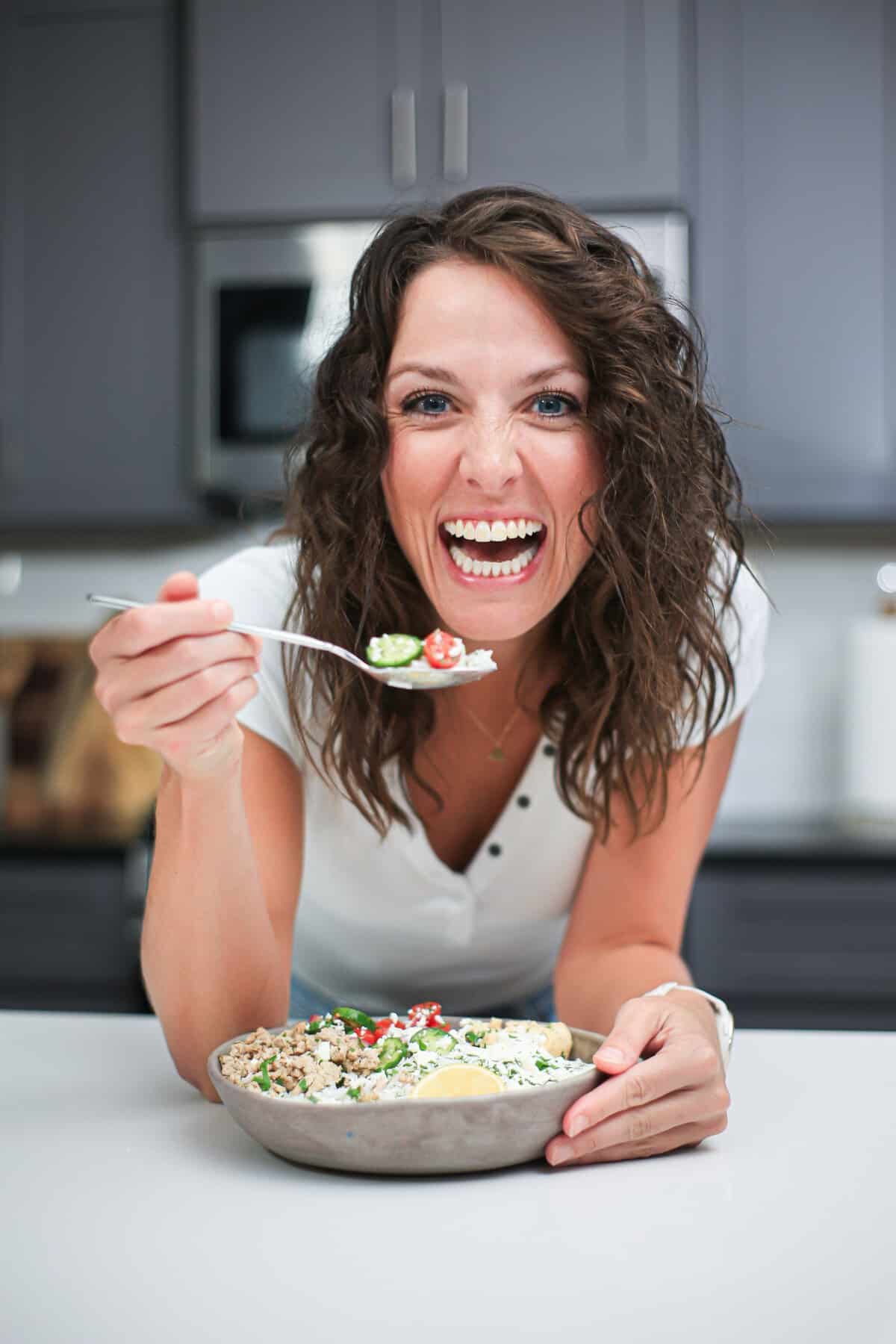
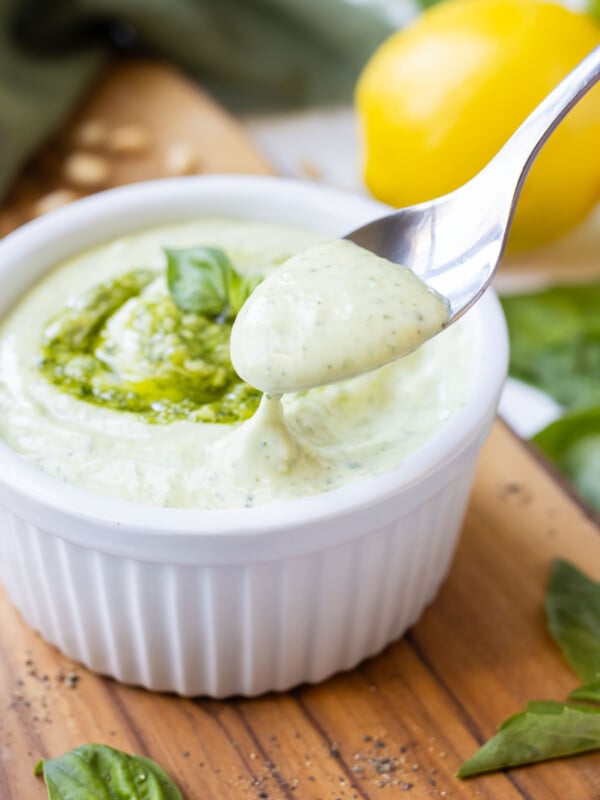
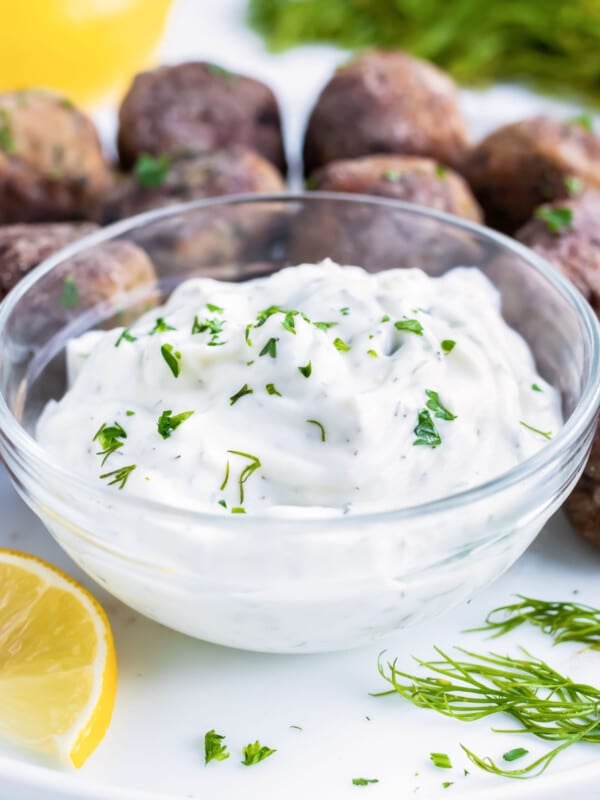
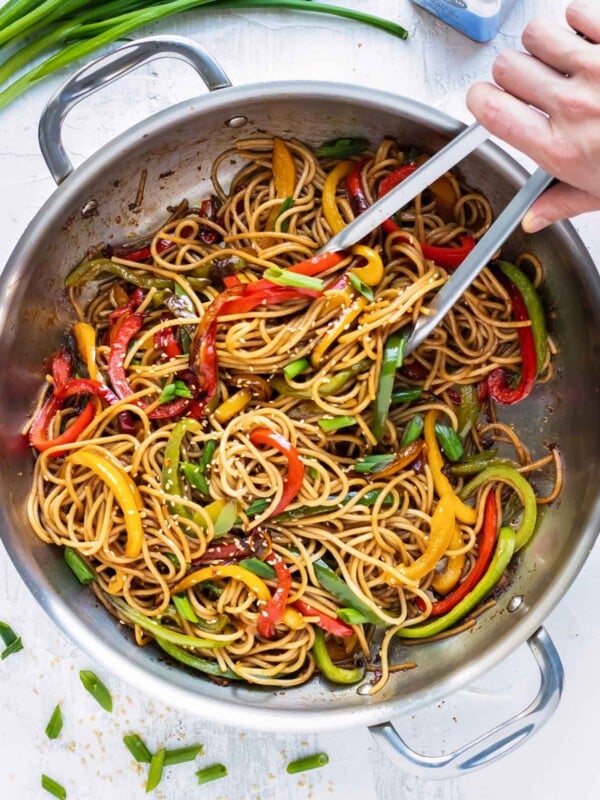
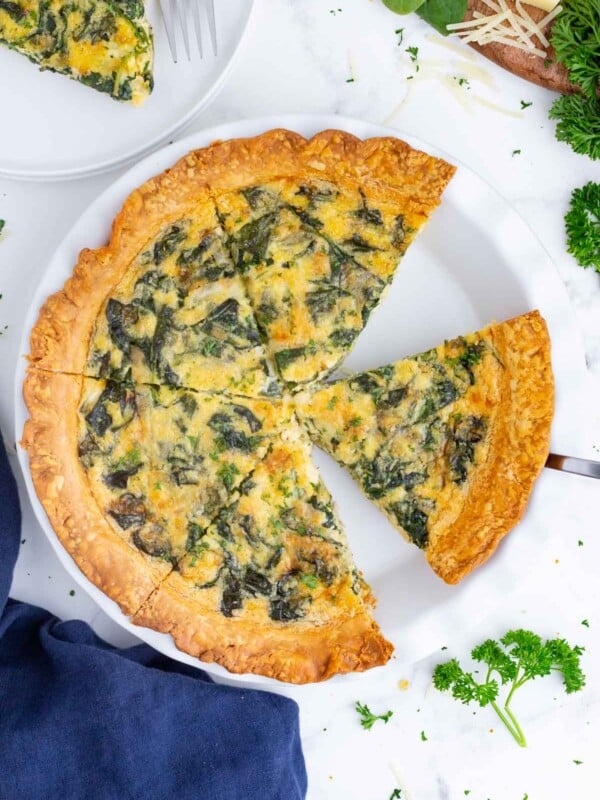
excellent directions wonderful flavor
Yay! So happy to hear you enjoyed the recipe, Pat! Thanks so much for taking the time to leave a comment and rating!
Excellent recipe! Doubled the batch and stored in the fridge. Better the next day, outstanding the 3rd day!
Yay! So happy to hear you enjoyed the recipe, Bruce! I love leftover noodles. Thanks so much for taking the time to leave a comment and rating!
When you said whisk the eggs, you meant to keep them whole but whisking usually assumes they are out of the shell. How do you cook whisked eggs and then you cut the yolk? Please explain. Thank you.
This is a perfect weeknight or any night meal, just packed with delicious rich flavor!
Yay! So happy to hear you enjoyed the recipe, Wendy! I agree! Thanks so much for taking the time to leave a comment and rating!
Wow! This article is an authentic and exhausted guideline for everything about the Jabchae. I assume a Korean chef submitted the article. Thanks for the very useful information!
Yay! So happy to hear you enjoyed the recipe, Kee! I’m glad you found the instructions useful and authentic. Thanks so much for taking the time to leave a comment and rating!
absolutely loved it will be a regular for sure
Yay! So happy you enjoyed this recipe, Lesley! Thanks for commenting and leaving a rating.